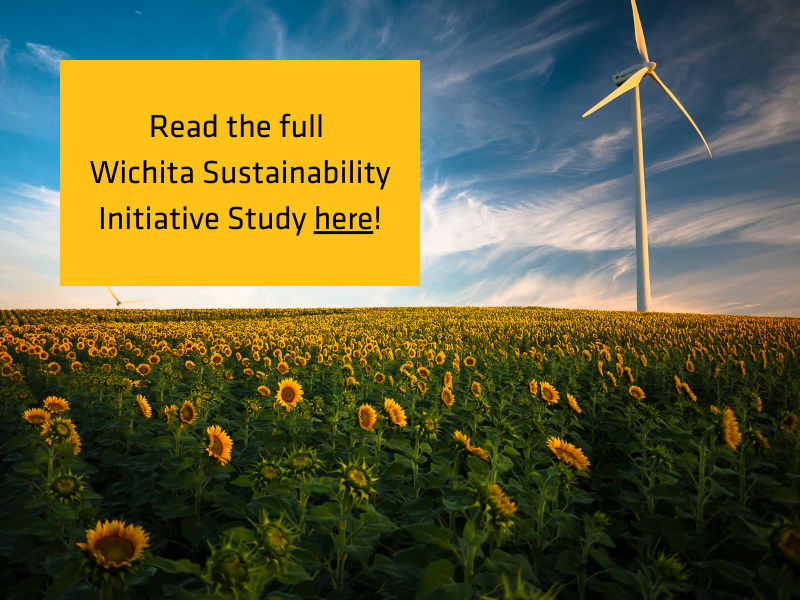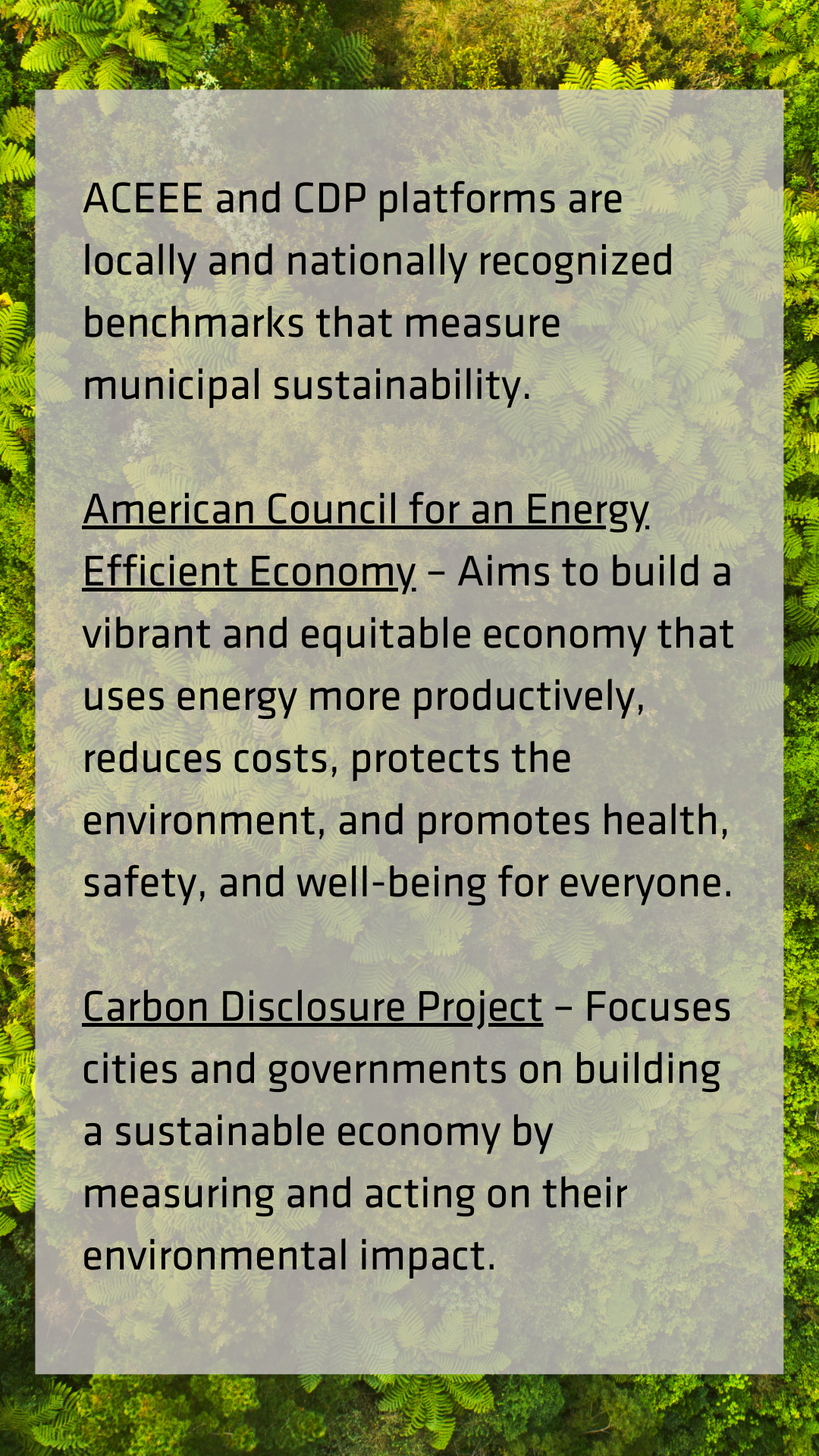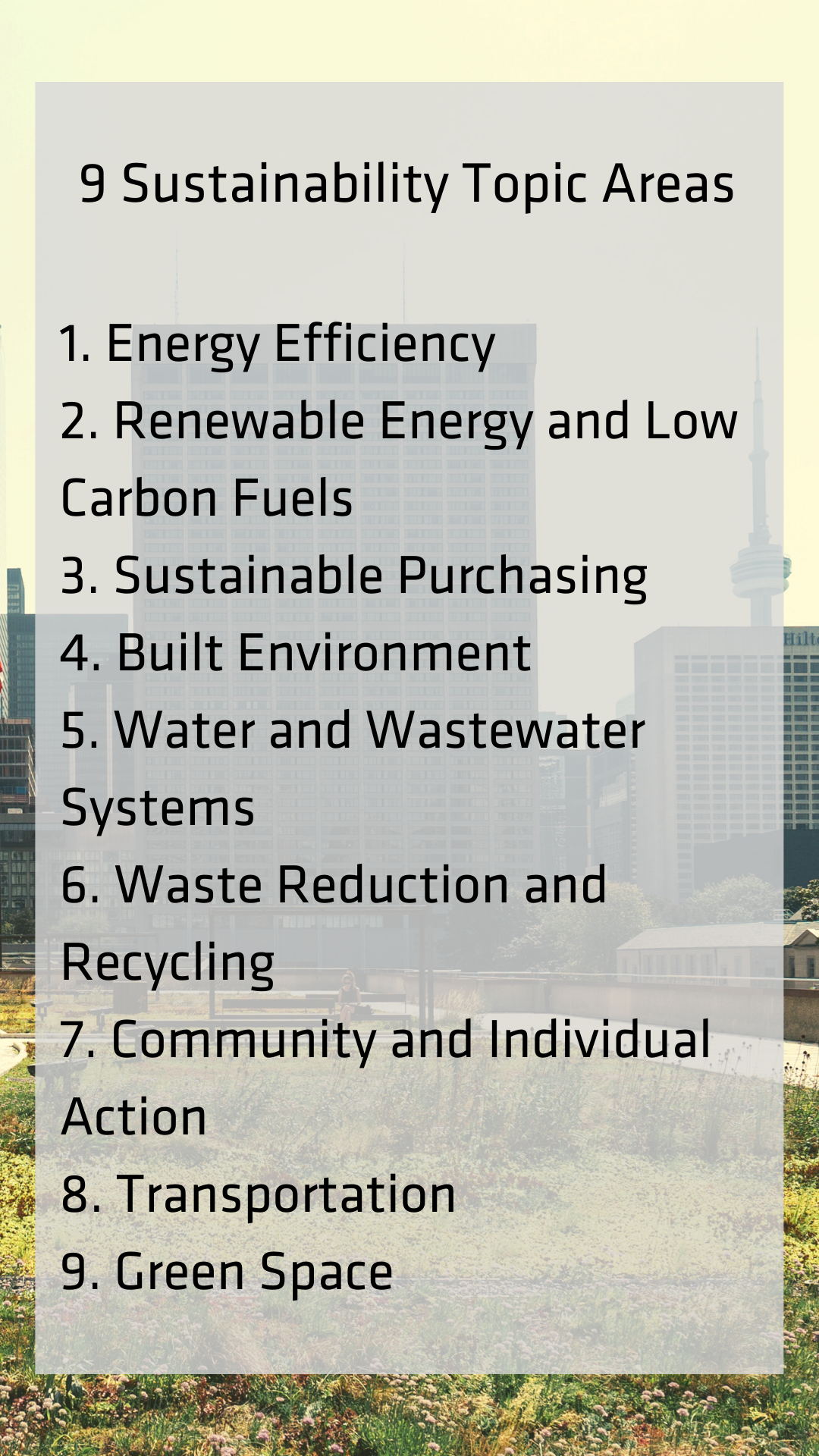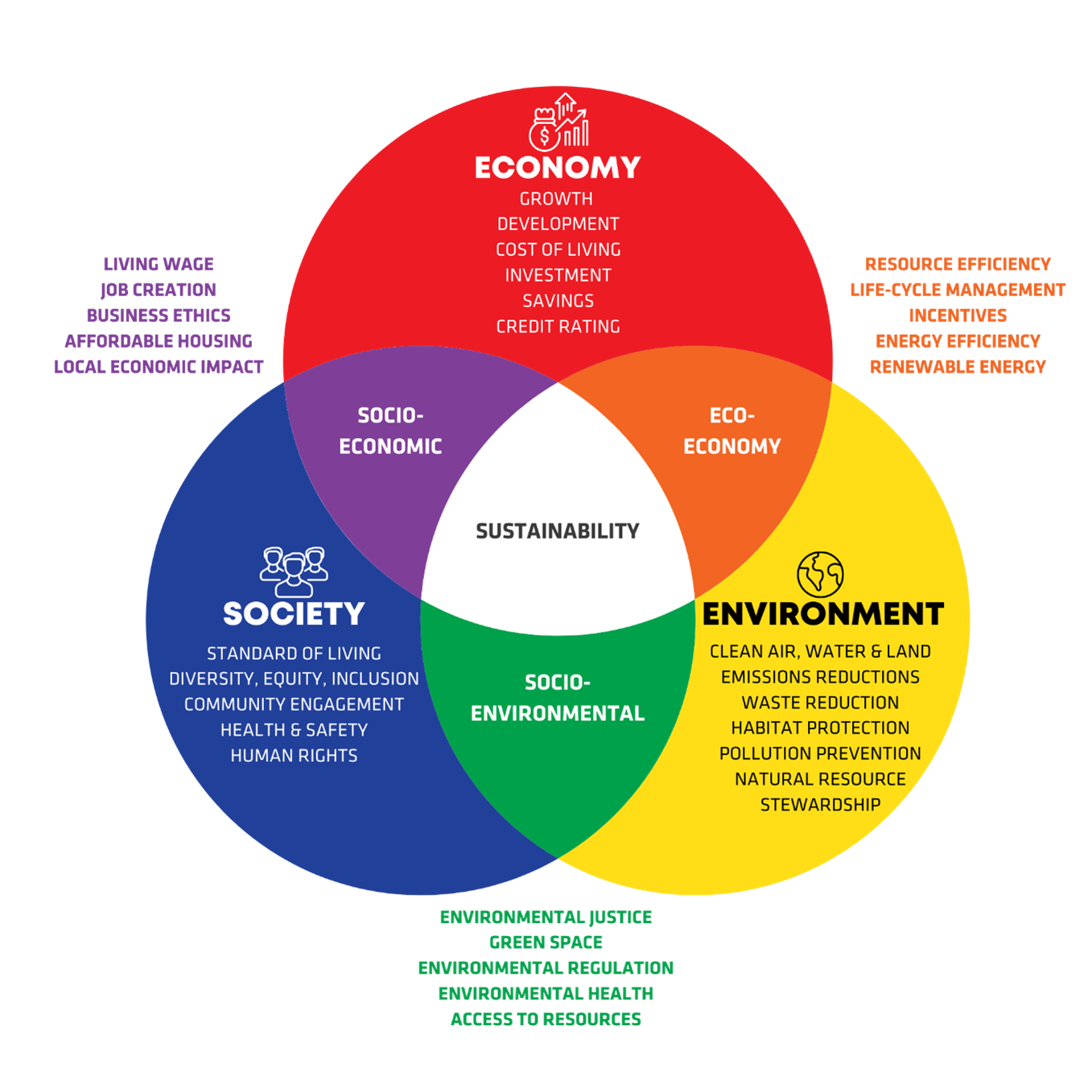Through the completion of the City of Wichita Sustainability Initiatives Study, the
Environmental Finance Center (EFC) identified a path toward a more sustainable future
for the City of Wichita, Kansas.
The report identifies 15 sustainability bundles that include targets, policies, partnerships and programs and projects that could be implemented over the next 1-3 years at an estimated cost of $1.72 - $1.95 million dollars.
The result? A cleaner environment, reduced greenhouse gases, and a community-culture of sustainability that will attract and retain young talent, allowing Wichita to grow and thrive for decades to come. Furthermore, the Sustainability Initiatives Study lays out a framework that can help establish a long-term (5-10 year) strategic plan that would yield even more environmental, economic, and social benefits.
The Study
In January 2021, the City of Wichita asked the EFC to conduct a study to evaluate sustainability initiatives and identify practical ways for Wichita to increase sustainability at the municipal and community level. The yearlong study would involve a lengthy research phase including, municipal sustainability methodologies, nationally recognized sustainability scoring platforms (ACEEE and CDP), and sustainability efforts at comparable and aspirational communities to best understand the current community sustainability landscape and opportunities.
The EFC identified over 200 initiatives that have the potential to build a more sustainable Wichita. Initiatives include implementation of targets, policies, programs, projects, and partnerships in nine sustainability topic areas.
As the team developed the list of initiatives, they also developed a tool for prioritizing projects – the Sustainable Initiatives Scoring Matrix. This unique, innovative digital decision-making

tool assists Wichita leaders, staff, and community stakeholders in identifying and prioritizing impactful initiatives. The scoring matrix allows users to quickly assess initiatives based on social, environmental, and economic factors most relevant to City operations and community interests. The matrix is a tool that can be used into the future for assessing the impact and sustainability of any community-level project.
Of the programs and projects that are scored in the matrix, 67 are selected as first steps because they are estimated to have a low cost and yield moderate to high environmental and social benefits. These selected initiatives are bundled into 15 groupings around environmental themes like green space or electric vehicles. Bundles are enhanced with 70 targets, policies, and partnerships that support the theme. These 15 bundles make up a roadmap to sustainability for Wichita.
Bundle Example: Urban Trees
| Proposed Targets | Establish tree cover goal |
| Programs: | None |
| Projects: In order of priority |
Conduct a tree canopy assessment Develop a community-supported fund for planting trees in the community, focusing on areas where enhancing the tree canopy would have the greatest environmental and social benefit. |
| Policies: |
Adopt a tree ordinance to protect the existing urban tree canopy and enhance development of the canopy through requirements for tree planting in new construction - maintain tree city status. Establish and implement sustainable landscaping standards for all public facilities. |
| Partnerships: | None |
The roadmap and decision-making tool provided through this study will help City of Wichita staff, officials, and the Sustainability Integration Board establish sustainability goals, outline critical next steps, and expeditiously move the community toward a healthy, prosperous, sustainable future.
What Even Is “Sustainability”?
Sustainability is often perceived as environmentalism or “being green”, solely focusing on protecting planet Earth from human behavior, and combatting climate change. However, community-focused sustainability is multifaceted. For the purposes of the Wichita Sustainability Initiatives report, sustainability is defined as the potential for long-term preservation of the city and well-being of the people who live there.
In practical application, sustainability focuses on the balance of three interconnected pillars: Economy, Society, and the Environment. All three components must be considered together to achieve lasting prosperity. The Sustainability Venn Diagram shows how the three pillars interconnect to achieve all the benefits of sustainability.
A community focused on sustainability will experience:
- Financial benefits through reduced municipal costs for energy, water, infrastructure, and maintenance; and increased tax and fee revenues due to increased economic activity
- Healthy residents through access to clean air, water, and food as well as opportunities to be physically active
- Economic growth as businesses choose to establish and remain in the community because the workforce is healthy and happy; and cost savings for energy, water, etc. are realized due to smart development and building standards

It’s Within Reach
The initiatives in the roadmap to sustainability are relatively low-cost and can be implemented in a few years’ time. If all 15 bundles of initiatives are implemented, Wichita could see its ranking in the ACEEE survey* increase from 99th to 33rd, placing it in the top 30% of 100 cities, based on 2020 ACEEE cities ranking.
Wichitans love this city and want to see it grow and change in a way that improves the quality of life for the next generation. That desire is the foundation of sustainability. There are organizations, businesses, groups, and the local government already making great progress towards sustainability right now, and we are all going to benefit as these efforts expand and multiply.
Learn more about how Wichita city staff, decision makers, Sustainability Integration Board members and community stakeholders can use the lists, tools, and roadmap in this report to make meaningful change in our community.
For more information and to read the full Wichita Sustainability Initiatives Study visit: City of Wichita Sustainability Initiatives Study
* The American Council for an Energy Efficient Economy (ACEEE) is a locally and nationally recognized benchmark that measures municipal sustainability. ACEEE aims to build a vibrant and equitable economy that uses energy more productively, reduces costs, protects the environment, and promotes health, safety, and well-being for everyone.

